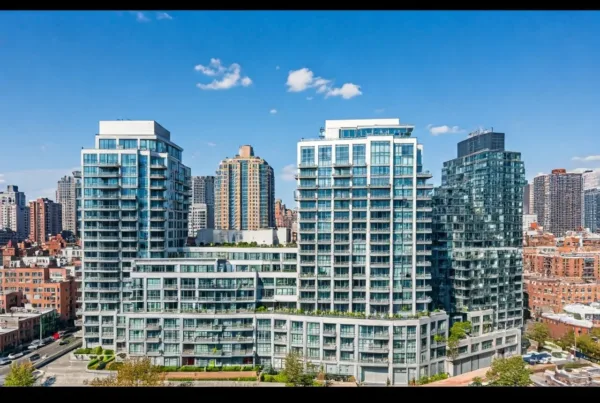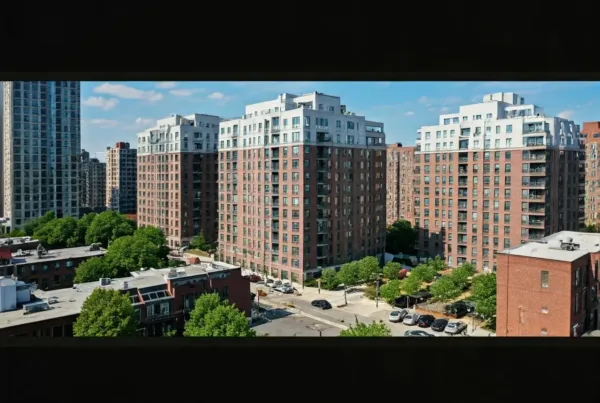Unlock the mystery behind the term sponsor unit in real estate and discover how it can impact your property investment.
Table of Contents
Introduction to Sponsor Units in Real Estate
In this section, we will introduce readers to what sponsor units are in the context of real estate. This will provide a foundation for the more detailed sections that follow.
Basic Definition
A sponsor unit in real estate is a term used to describe a residential unit in a condominium or cooperative building that is owned by the developer or sponsor of the building. These units are often set aside by the sponsor to sell independently of the other units in the building.
Why It Matters
Understanding sponsor units is essential for anyone interested in real estate because they offer unique opportunities and considerations for buyers. By delving into the concept of sponsor units, individuals can make more informed decisions when navigating the real estate market.
Understanding Real Estate Sponsors
In this section, we will delve deeper into the world of real estate sponsors to help you grasp their significance in the realm of sponsor units.
Who Are Real Estate Sponsors?
Real estate sponsors are individuals or companies that initiate and oversee real estate investment projects. They typically have the expertise and resources to identify, acquire, and manage properties for investment purposes. Sponsors play a crucial role in bringing together investors and properties, often providing the necessary funding and expertise to make the project successful.
Sponsor Units and Sponsors
When it comes to sponsor units, real estate sponsors are the key players. Sponsor units are apartments within a co-op or condo building that are owned and sold by the original sponsor of the building. These units are usually brand new or newly renovated, and the sponsor retains ownership until they sell them to individual buyers. Sponsors often offer incentives or discounts to attract buyers to these sponsor units.
How Sponsor Units Work
In this section, we will explain the mechanics of how sponsor units operate within the real estate market, breaking down the process in a way that is easy to understand.
Buying Sponsor Units
When you hear about sponsor units in real estate, it means that the apartment or property was originally owned by a developer or sponsor. These units are typically brand new and have never been lived in before. To buy a sponsor unit, you would need to work with the developer or sponsor directly, rather than going through a traditional real estate agent.
| Term | Definition |
|---|---|
| Sponsor Unit | A sponsor unit in real estate refers to a unit within a condominium or cooperative building that is still owned by the developer or sponsor of the building. |
| Purpose | These units are usually held by the sponsor for a period of time after the building is completed in order to give them control over the sale of the unit. |
| Availability | Sponsor units are typically made available for sale at a discounted price compared to other units in the building in order to attract buyers. |
| Restrictions | There may be certain restrictions in place when purchasing a sponsor unit, such as limits on financing or the ability to rent out the unit. |
One key advantage of buying a sponsor unit is that you can sometimes get the property at a lower price compared to other units in the building. This is because developers may offer discounts or incentives to sell the units quickly.
Additionally, when buying a sponsor unit, you may have more flexibility in customizing the finishes and features of the property to suit your preferences. This can be a great way to personalize your new home exactly the way you want it.
Benefits and Drawbacks
Like with any real estate transaction, there are both benefits and drawbacks to buying a sponsor unit. One benefit is the potential for cost savings, as mentioned earlier. Another advantage is the opportunity to work directly with the developer or sponsor, which can lead to a smoother buying process.
On the flip side, buying a sponsor unit may come with certain risks. Since sponsor units are typically new constructions, there could be unforeseen issues or delays in the building process. Additionally, there may be restrictions or limitations on resale or rental of the unit, which could impact your future plans.
Overall, when considering buying a sponsor unit, it’s important to weigh the pros and cons carefully and make an informed decision based on your individual circumstances and preferences.
Examples of Sponsor Units
Let’s imagine a real-life scenario where sponsor units come into play. In a newly constructed condominium building, the developer may reserve a set of units as sponsor units. These units are typically larger, have higher-end finishes, and may offer unique amenities compared to the rest of the building. The developer can then sell these sponsor units at a premium to help offset the costs of the construction.
Another common scenario is in a co-op building where a sponsor unit is owned by the original developer or a corporation. These sponsor units may differ from the other units in the building in terms of layout, size, or special features. The sponsor may use these units as a way to maintain control over the building or as a source of rental income.
Case Study
Let’s take a closer look at a case study to better understand sponsor units. In a luxury high-rise apartment building in a bustling city, the developer reserves the top floor as sponsor units. These units boast panoramic views, high-end appliances, and exclusive access to a rooftop pool and fitness center.
As the building nears completion, the sponsor puts these units on the market at a premium price. Potential buyers are drawn to the exclusivity and luxury offered by these sponsor units. Over time, these units become sought-after for their unparalleled amenities and prime location within the building.
Conclusion and Summary
In this blog post, we explored the concept of sponsor units in real estate. We learned that sponsor units are special properties usually owned by the developer or sponsor of a building. These units often come with unique benefits but also some drawbacks that buyers should consider.
Final Thoughts
Understanding sponsor units and the role of real estate sponsors is essential for anyone interested in the real estate market. By grasping the mechanics of how sponsor units work and being aware of common scenarios where they are used, individuals can make informed decisions when navigating the realm of real estate transactions.
Frequently Asked Questions (FAQs)
What is a sponsor unit?
A sponsor unit in real estate is a term used to describe a unit within a building that is owned by the developer or sponsor. These units are typically held by the sponsor after the building is constructed and are often sold or rented out to buyers or tenants. Sponsor units may have certain ownership restrictions or benefits that differ from other units in the building.
Are sponsor units a good investment?
Begin your search and start earning cash back!
Investing in sponsor units can be a good opportunity for some buyers, as they may offer unique advantages such as potential discounts, lower closing costs, or customization options. However, like any real estate investment, there are risks involved, and it is essential to thoroughly research the market, understand the terms of the purchase, and consider your financial goals before deciding if a sponsor unit is a good investment for you.







